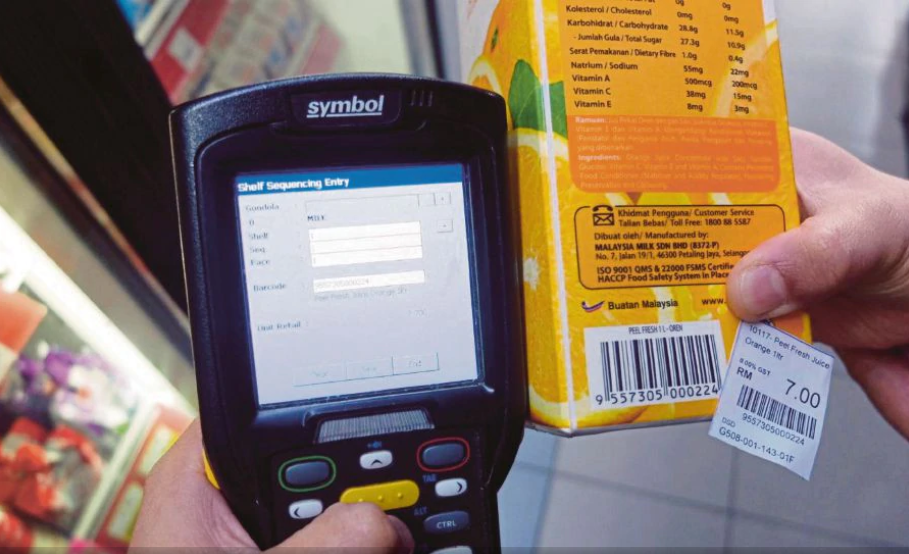Sugar tax not so bad after all, says Customs

PUTRAJAYA: GIVEN the people’s fondness for sweet food and drinks, the arrival of the new “sugar tax” yesterday was greeted with trepidation by many Malaysians.
The general rumblings of discontent mostly focused on how the cost of breakfast, for example, would increase, with some speculating that the price of teh tarik would shoot up.
The Customs Department, however, said the sugar tax — officially known as the Sweetened Beverages Excise Duty — would impact only the prices of ready-to-drink beverages sold off the shelves, and that the average Malaysian would remain unaffected.
Customs Department assistant director-general (internal tax division) Datuk Ahmad Maher Abd Jalil said the new tax, which involved duties that needed to be paid by manufacturers and importers of beverages, would not have any effect on the price of teh tarik or kopi-o enjoyed by Malaysians at eateries.
The regulation, he said, would not affect alcoholic beverages, cordials and unsweetened milk products.
He said the list of drinks expected to see a slight increase comprised non-alcoholic beverages, fruit or vegetable juices as well as sweetened dairy-based beverages.
Maher said manufacturers and importers would eventually transfer the new taxes on ready-to-drink sweetened beverages, which exceeded the stipulated threshold of sugar content, to consumers.
However, he said, the sugar tax was intended to encourage manufacturers to explore low-sugar alternatives for their products and compel consumers into making healthier choices.
“The industries will be impacted by the new tax in two ways. Firstly, the prices of sweetened beverages may increase.
“This will lead to the industries striving to reduce their products’ sugar content. The market (for the products) will continue to exist. But consumers might choose the reduced sugar versions (of these beverages).
“Consumers have a choice in this matter. The extra sweetened beverages are being taxed. These taxes are being paid by manufacturers and importers, who will likely transfer the costs (to consumers),” he told the New Straits Times in an interview here yesterday.
Maher said the taxed beverages would still be available in the future, but their sugar content would eventually be reduced by manufacturers, as practised in other advanced countries.
“If consumers want sweetened beverages, it will be a bit expensive. The rationale behind this move is to safeguard the people’s health.”
The move to implement the sugar tax could not come at a better time. Malaysia has the highest rate of diabetes in Asia and one of the highest in the world.
Statistics by the National Diabetes Institute last year showed that almost half of Malaysians do not know that they have diabetes. Most of the time, type 2 diabetes sufferers have no symptoms until they are struck by a heart attack, stroke, kidney failure, blindness or have their limbs amputated.
There are 2.5 million adults — almost eight per cent of the population — aged 18 and above, with diabetes in Malaysia.
Maher said the introduction of the sugar tax required local beverage manufacturers to obtain a licence to produce extra sweetened beverages.
The fee for a licence is RM200 and it can be renewed annually.
Importers of sweetened beverages are required to pay the same taxes.
Under the new tax, 40 sen will be imposed on non-alcoholic beverages, except for milk-based drinks containing lactose with more than 5g of sugar per 100ml. Examples of these are canned colas, energy and carbonated drinks, packet drinks and canned coffee drinks.
A 40 sen tax per litre will be imposed on beverages with more than 12g of sugar per 100 ml. Examples of these are fruit and vegetable juices.
A 40 sen per litre tax will be imposed on milk-based beverages that contain lactose for every 7g of sugar per 100ml. Examples of these are chocolate milk. Each manufacturer is given a month to pay the duties to the Customs Department.
In clarifying the confusion
over the new tax, Maher said none of the drinks served in restaurants, cafes and kiosks were affected.
“The drinks served in kedai kopi or the teh tarik from the mamak restaurant are not affected by the tax. Unless you take those ready-to-drink canned or bottled beverages from their chillers.
“The 3-in-1 beverages and bubble tea drinks do not fall under the tax. Your cappuccino is not affected. Your Starbucks beverages are not included.”
On the response from manufacturers and importers, Maher said 90 per cent of local beverage manufacturers had registered for the special licence under the new taxation system.
“Sixty-three manufacturers have been issued with the special licence required under the sweetened beverages excise duty.
“They comprise 90 per cent of the companies manufacturing ready-to-drink beverages in the country. The Customs Department is facilitating the registration of other manufacturers.”
He said the response from manufacturers had been positive as much of the market was already moving towards the low calories and low-sugar ready-to-drink beverages.
Maher said the requirements for importers were more complicated. Importers were required to show proof, through certified laboratory checks, on the sugar content of their products when they paid the excise duties.
“We are giving importers a grace period to furnish the department with laboratory reports.”
He said the government had yet to decide on how the revenue from the tax would be used.
On the suggestion that the funds could be used for food programmes for schoolchildren, Maher declined to comment.
“The revenue is not the main purpose of this tax. At this stage, consumers do not see its effect as the tax is imposed on importers and manufacturers.
“Industries are moving towards low-sugar products.”
It is learnt that the new tax falls under the responsibility of the Domestic Trade and Consumer Affairs Ministry, as the latter is privy to prices of goods in the country.
